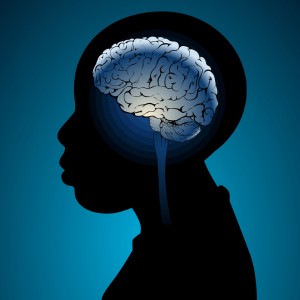Poverty Early in Life Decreases White Matter Integrity in the Brain
One-fifth of children in America grow up in poor families. Poverty can affect development, health, and achievement, and new evidence shows it even affects brain structure.
New unpublished research suggests that early poverty can affect the brain’s structure into adulthood. At a 2015 scientific meeting, researcher James Swain reported that socio-economic status at age 9 was associated with the integrity of white matter in several regions of the brain, including the hippocampus, parahippocampal gyrus, dorsolateral prefrontal cortex, ventrolateral prefrontal cortex, corpus collosum, and thalamus at age 23–25, regardless of income at that time.
The brain regions affected by childhood poverty support executive function (planning and implementation skills), social cognition, memory, and language processing. White matter provides the physical connections between parts of the brain, so damage to white matter may lead to problems with functional connectivity of the brain.
Poverty Impacts Brain Development
 In a 2013 study of children by Luby et al. in the Journal of the American Medical Association Pediatrics, poverty in early childhood was associated with smaller white and gray matter in the cortex and with smaller volume of the amygdala and hippocampus when the children reached school age. The effects of poverty on hippocampal volume were mediated by whether the children experienced stressful life events and whether a caregiver was supportive or hostile.
In a 2013 study of children by Luby et al. in the Journal of the American Medical Association Pediatrics, poverty in early childhood was associated with smaller white and gray matter in the cortex and with smaller volume of the amygdala and hippocampus when the children reached school age. The effects of poverty on hippocampal volume were mediated by whether the children experienced stressful life events and whether a caregiver was supportive or hostile.
The children were recruited from primary care and day care settings between the ages of three and six, and were studied for five to ten years. They were initially assessed annually for three to six years and information on psychosocial, behavioral, and developmental dimensions were collected. Then the children took part in a magnetic resonance imaging (MRI) scan and continued annual assessments that included information such as whether the children experienced stressful life events.
Previous research has shown that poverty affects children’s psychosocial development and economic success in adulthood. This research shows that poverty also affects brain development. The findings suggest important targets for intervention that could help prevent these developmental deficits.


